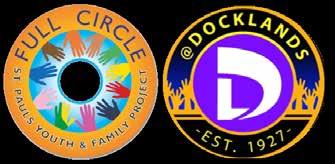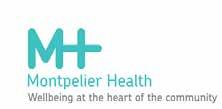
5 minute read
Top Tips for a new Career
from issue 17
Farewell 2020! It was a crisis in terms of employment for the travel, hospitality and retail sectors and our hearts go out to them. do not be disheartened, we all have transferable skills to get into sectors i.e.: property, construction, care, logistics & driving are booming! There is also a green recovery well on its way with a variety of opportunities and Bristol is pioneering! You may wonder if there is anything you can do to get your foot into these prospering sectors. Lucky for you, we have been asked to compile a list of 20 top tips, from your CV to the follow-up. If you want that competitive edge, read on.
Get Specific - Time is precious when looking for a new job. Do not waste it by filling out a bunch of applications to places you are only semi-interested in or have skills for. Most job boards and recruiting sites allow you to make specific searches to match you with a job that you have skills for and would enjoy and succeed at. Do not Settle - Remain specific when it comes to where you want to work. Before starting your research, try compiling a list of what the perfect company is to you, the type of work environment you thrive in, research the employers brand online and speak with friends and family, so that you find a company and position that fits your skills.
Advertisement
Do not Just Quit - You have done your research and submitted your application/cv, but now what? Keep your eyes open for other potential employers and opportunities as they come available, it is better to apply for many positions that interest you than just applying to a few. If a company sends a rejection letter, take this opportunity to ask them what you could have done differently, and build on that for next time. Better yourself!
Remember the Cover letter - Hiring managers only spend seconds reviewing a CV, so it’s important to grab their attention with a cover letter. It is best practice to change the cover letter for each position you apply for.
Job Specific CV - Just like your cover letter, each CV you submit should focus on that job. Be sure to highlight certain skills and experience that caters to that position. Keep it Simple - When it comes to stating experience and work history, keep it recent and 6 simple. 7
Employment is not Everything - Many job seekers go weeks or even months without finding the right job. This leaves gaps in the work history section that often leaves recruiters fearful the job seeker is not reliable. Fortunately, stating your work history is not all there is to a CV.
Be sure to feature any volunteer work or projects you did during the gap. If you were a stayat-home parent, mention that as well. Recruiters want to know what you were doing and how you were growing your skills while you were not working for a company. Dress for What You Want - Most have heard the saying, “dress for the job you want, not the 8 job you have.” First impressions are everything, especially when you only have 30 minutes or so to talk with someone before they decide to hire you. Yes, dress for the online interviews also as this puts you in the right mindset. 9 Do not Fake It - Employers do not want to see fake smiles or rehearsed answers when it comes time for the interview. They want to know who they hope to hire, and you want to match the position and culture. Being honest is the best way to show off your skills and land the job of your dreams.
hospitality and retail sectors and our hearts go out to them. do not be disheartened, we all have transferable skills to get into these prospering sectors i.e.: property, construction, care, logistics & driving are booming! There is also a green recovery well on its way with a variety of opportunities and Bristol is pioneering! You may wonder if there is ed to compile a list of 20 top tips, from your CV to the follow-up. If you want that competitive edge, read on.
10 Share Stories - While in the interview, it’s important to back up your skills and experience.
Share stories and gives examples of situations that really made your skills stand out. Leave the negativity at the Door - When you are talking about previous experiences and 11 situations, it is important to remember that you should not talk down a past employer. This can create a bad impression on your character. Plus, this is an interview about moving forward. Any past discrepancies have no place there. 12 The Follow Up - Whether you have heard back about the job offer or not, it is important to follow up a few days after the interview. Send a thank you letter or email stating how it was a pleasure to speak with them and that you really appreciate the opportunity. 13 Network - Sometimes, job opportunities happen in the most unlikely of places. Be open to communicating and networking with others in your field. This can be done over email, or even over social media platforms like LinkedIn. Allow yourself to connect with others and make your presence known. 14 Get References - Before applying to any job, create a list of references and reach out to those people to make sure they are comfortable with you listing them. Do it Again - So, you applied for a job and did not get it. A few weeks later, you notice that the 15 position is still open. Feel free to try again! Take note of anything that may have gone wrong the first time and take another crack at it. This shows initiative and your ability to develop and grow. 16
Turn Negatives into Positives - We all have weaknesses, and employers want to know about them. Remember, a weakness can become a positive.
Focus on Accomplishments - Acknowledging your accomplishments is just as important as anything else and will help you stand out. 18 Stand Out from the Rest - This can mean many things. From showcasing a work portfolio, to sending in a presentation that acts as your cover letter.
Be confident - This can range from answering questions with a straightforward response. Employers want to know that you are confident in your skills and yourself. Without showing this, it can lead them to believe that you are not qualified. 20 Be Engaged - Hiring managers and employers want to know that you are listening and interested in what they have to say. This means you must be engaged as well! Ask questions if something is unclear, nod to show you are listening and keep eye contact. There is nothing more impressive than someone who shows up prepared and ready to tackle any obstacles ahead.










